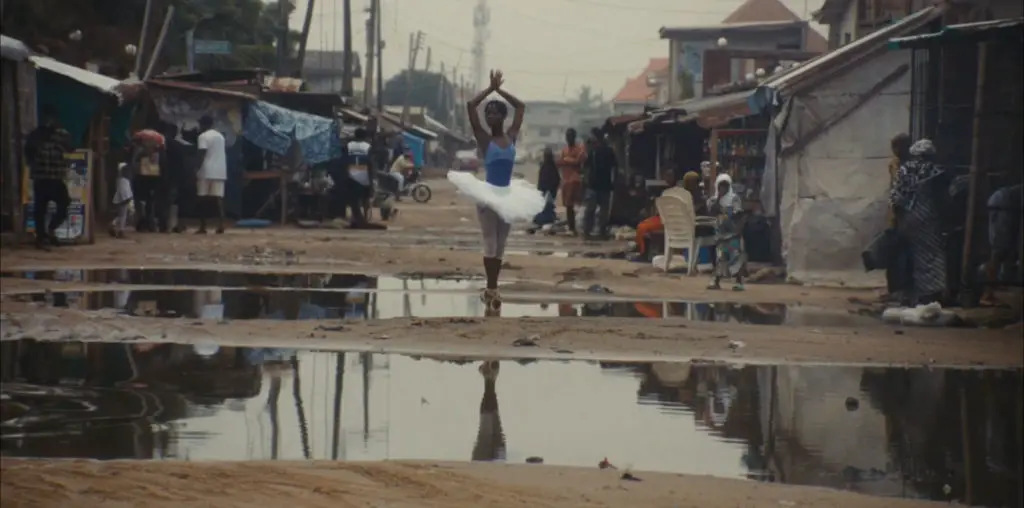
Re-makes, re-imaginings… there’s just no stopping them. Hollywood is committed to a course of recycling successes, no matter how great or small, and the most we can hope for is that the people re-making the classics we remember will be respectful of the original and/or competent in their filmmaking. Luckily for “Halloween” fans, the guy tapped to bring us the re-imagining was horror aficionado and improving filmmaker Rob Zombie.
Unfortunately for Zombie, his attempt to craft the tale into a more realistic realm, making Michael Myers a psychopath product of his upbringing and environment rather than a random killing machine, both succeeds and fails. To Zombie’s credit, he’s somewhat crafted a solid standalone film that showcases his growth as a filmmaker. To his detriment, he’s tied to a classic that, when he’s forced to pay proper homage, drags down his otherwise unique take.
This version of “Halloween” has a lengthy back story built-in. Rather than touching upon a young Michael Myers killing his sister and then being institutionalized, like the original, this version gives us more details of Myers’ homelife, which is like an unrated episode of “Jerry Springer.” Young Michael (Daeg Faerch) begins to act out, killing animals first, then eventually those in his family that he’s less impressed with, like his mother’s boyfriend (William Forsythe) and older sister. He spares his younger sister and mother (Sheri Moon-Zombie, in her best performance as an actor to date), however, and gets the aforementioned institutionalization, where he gets therapy from Dr. Loomis (Malcolm McDowell)… until Michael realizes that he’s never getting out, and decides to not talk anymore, a protest he keeps up for 15 years. And over that time, Michael (Tyler Mane) grows into quite the man, expanding into the muscular and 6’8″ killing machine we all know and love, who breaks out of the institution, goes back to Haddonfield and attempts to get in touch with his younger sister, who is now the adopted Laurie Strode (Scout Taylor-Compton). Oh, and he kills a bunch of people.
The back story of Michael lasts almost an hour, and is truly the strength of this film as Zombie is able to craft a unique tone and mood that really brings in the audience and keeps them engaged. Never mind whether the motivations or psychological cause-and-effect make sense, really that’s less impressive then the fact that Zombie is able to showcase that he has grown as a filmmaker, and that there’s an elevated style that exists. Unfortunately for Zombie, he can’t keep this up once Myers escapes, as that’s when the film becomes a re-make with a few twists as opposed to the re-imagining he’s been hyping. The second half of the film is all about homaging music cues, camera angles and other bits from the original and all it really does is point out how out of place the first half of the film is. Plus, Scout’s portrayal of Laurie Strode is so grating that you’re actually rooting for Michael to get her and therefore save your eardrums from her annoying vocal performance.
It truly feels as if there’s two very different movies trapped in one, and both halves do a disservice to the other. The second half can’t help but remind you of the classic, a comparison that does quite a bit of damage to the newer version, because it just doesn’t gel with its modern day setting. What suburb in the U.S. will allow a 6’8″ man in a mask, with a knife and/or bloody hands, stand out in the open and go unnoticed except by his eventual victims? It also doesn’t gel with the motivations set up at the beginning of the film, because Michael’s killing spree just doesn’t make sense within that context. At least in the original, where there was no context until “Halloween II,” when we were let in on the news that Laurie was his sister, the killing spree was just that: a random killing spree. This one, by attempting to explain everything means that it has to work within that explanation, and when it doesn’t, it drags the entire endeavor down.
I will give Zombie points for setting up the ambiguity towards Michael’s return for Laurie. Does he return to kill her, or because she’s the only one he loves that’s still alive? Still, why is he killing all her friends instead of going right for her? Without Zombie’s attempt at context, no one cares. Here… it becomes a plot concern that has to make some sense.
Save the first two “Halloween” films, Zombie’s take is the best film of the franchise. That’s not saying much, I know, but it is a compliment that Rob deserves. Each movie he does is better than the last from a filmmaking standpoint; he’s truly learning his craft and he did make this his own… about halfway. Had he not been tied to the classic for the second half and perhaps had just gone for a completely original film that perhaps owed its inception to “Halloween” as opposed to trying to BE “Halloween,” I’d say he’d have made a top-notch horror film, period. As it stands, he made a noble attempt, and it could’ve been a Hell of a lot worse, but it’s not as great a film as its potential hints at.

